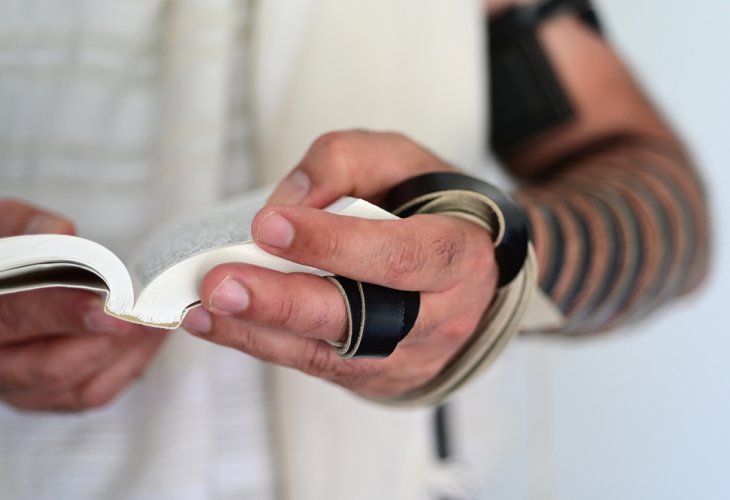Jewish Law
Believing in Yourself: A Precondition for Becoming a Torah Jew
Esau might have become the father of the Jewish People if he had only believed he could conquer his yetzer hara...
 (Photo: shutterstock)
(Photo: shutterstock)The Celestial Debate: Moshe and the Angels
The Talmud relates a fascinating episode relating to the ascent of Moshe Rabbeinu to heaven to receive the Torah. The angels objected, saying the Torah, a hidden treasure, should remain with them in the heavens rather than being given to those "born of woman," mere flesh and blood. In response, Hashem instructed Moshe to confront the angels and, since he feared that the angels might burn him with their breath, Hashem told him to hold fast to the Throne of Glory and answer their objections. Ultimately, Moshe won the debate by arguing that it is specifically humans who need and deserve the Torah, as only humans contend with the yetzer hara which tempts to choose anything but the path of life.
Why Was It Moshe's Task to Respond?
Rabbi Moshe Mordechai Chodosh ztz"l, a Torah leader from the post-war period, posed an intriguing question: Why was Moshe tasked with responding to the angels? After all, he had not demanded to be given the Torah — it was Hashem who had invited him to heaven to receive it.
Rabbi Moshe Mordechai explained that there is a profound message within this narrative, one that is relevant to each and every one of us.
The Lesson of Esau and the Birthright
The Torah recounts what happened when Yaakov Avinu (Jacob) asked Esau to sell him his birthright. Esau responded, “Behold, I am going to die, so what good is this birthright to me?” At first glance, this is a curious response; after all, not only will Esau ultimately die, but Yaakov and everyone else, too.
Rashi explains Esau's response as the result of his fear of the spiritual demands associated with the precious birthright. Before deciding whether to accept it, he asked Yaakov what it would entail, and Yaakov told him that transgressing the Torah's laws would lead to severe punishment. Hearing this, Esau responded, "I am going to die as a result of this" — I will end up deserving of capital punishment when I transgress — and so he declined to accept the challenge, lacking faith in his ability to prevail.
Discovering Our Potential: A Lesson from Moshe
Returning to the debate between Moshe and the angels, it seems that Hashem should have addressed the complaint. Instead, He instructed Moshe to answer and reveal a foundational lesson: anyone who wishes to receive the Torah must believe in their own strengths and abilities. Moshe needed to first trust in his ability to respond to the angels, and only then was he truly worthy of receiving the Torah and bringing it down from heaven.
The Importance of Believing in Oneself
These events underscore the critical importance of believing in ourselves. Someone who doesn't recognize the amazing strengths Hashem has granted each and every person will never live up to his potential and may even assume that there is something G-d forbid wrong with the Torah as it places "superhuman" demands on the Jewish People. But a person who is aware of his strengths and capabilities will utilize them fully in life, never shrinking from challenges he knows he can overcome and earning his rightful reward.

